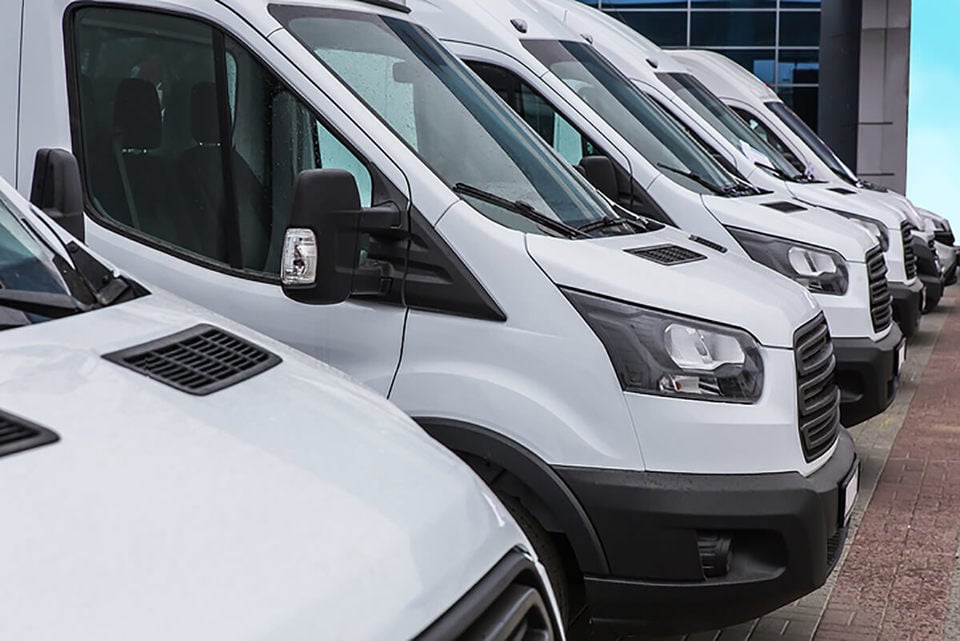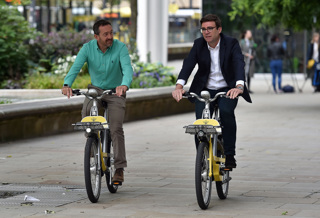Greater Manchester is calling on the Government to pause funding to upgrade vans, taxis, coaches and minibuses to cleaner models, with operators unable to access new vehicles and record prices in the used market.
A ‘Category C’ charging clean air zone (CAZ) is due to be launched from May 30, and will operate seven days a week, 24 hours a day.
Non-compliant coaches and HGVs will be charged £60 to enter the zone, and taxis and private hire vehicles £7.50, with a temporary exemption for Greater Manchester-licensed vehicles until May 31, 2023.
Older vans and minibuses will also get an exemption until the same date but will be charged £10 thereafter.
Charges will be based on vehicles meeting certain emission standards – Euro6/VI or better for diesel engines, and Euro4 or better for petrol.
However, the region had secured £120 million in Government funding to help fleets upgrade to cleaner, compliant vehicles, with applications for HGVs opening in November, last year.
It had earmarked £87.9m for its Clean Commercial Vehicle Fund to upgrade vans, HGVs, coaches and minibuses, and £21.4m through the Clean Taxi Fund for GM-licensed taxi and private hire vehicle owners, drivers and operators to switch to cleaner vehicles.
However, Greater Manchester is asking the Government to pause the next phase of the financial support scheme, which was due to open at the end of this month.
Councillors insist the the CAZ won’t be scrapped, but there has been a public backlash against the scheme in recent months.
Speaking to councillors at Manchester Town Hall yesterday (Thursday, January 20), Simon Warburton, transport strategy director at Transport for Greater Manchester (TfGM) argued that the funding scheme needed a 'fundamental review'.
"We face a dual challenge of the volume of vehicles that are in the market and also the prices at which they are in the market,” he explained.
"Our advice now is that we are no longer confident that the funding arrangement as it stands will provide for the quantum and the sequencing of funding that is needed."
Warburton said that light goods vehicles will be the most affected by the CAZ, because Greater Manchester has a 'particularly old' fleet of vans, reported the Manchester Evening News.
Replacing these with either new vehicles or nearly new vans, however, is proving difficult and expensive, with a microchip shortage leading to long lead times and a huge price increases in the used van market.
Trafford council leader Andrew Western, who is the clean air lead in Greater Manchester, said: "We are still legally directed to achieve compliance in the shortest time possible and not later than 2024 and we have a moral obligation to do so too.
"But there is undoubtedly a real concern coming through from the evidence that we've seen and also anecdotally from smaller businesses in the conurbation that they do want to upgrade, but they're struggling to, in some cases, replace.
"With those changes to second-hand prices and the potential ramifications of that being several thousand pounds potentially increasing the costs of second-hand complaint vehicles, there's much for us to do and obviously not all of that is within our jurisdiction as Greater Manchester.
"These are national and global supply chain issues, and they require a national solution."
The Government has been calling on regional authorities to introduce clean air zones (CAZs) after the UK's highest court, the Supreme Court, ordered ministers in 2015 to take immediate action to cut air pollution.
Following the meeting at Manchester Town Hall, the Mayor of Greater Manchester, Andy Burnham, tweeted that council leaders had "tried in good faith to make the Government's legal direction work".
"However, changes in the vehicle market mean it is impossible to proceed on the current basis without causing real hardship to some of our residents," he said.
"This decision opens up the space for urgent, joint discussions with the government about potential changes to make the scheme fair for everyone."























Login to comment
Comments
No comments have been made yet.